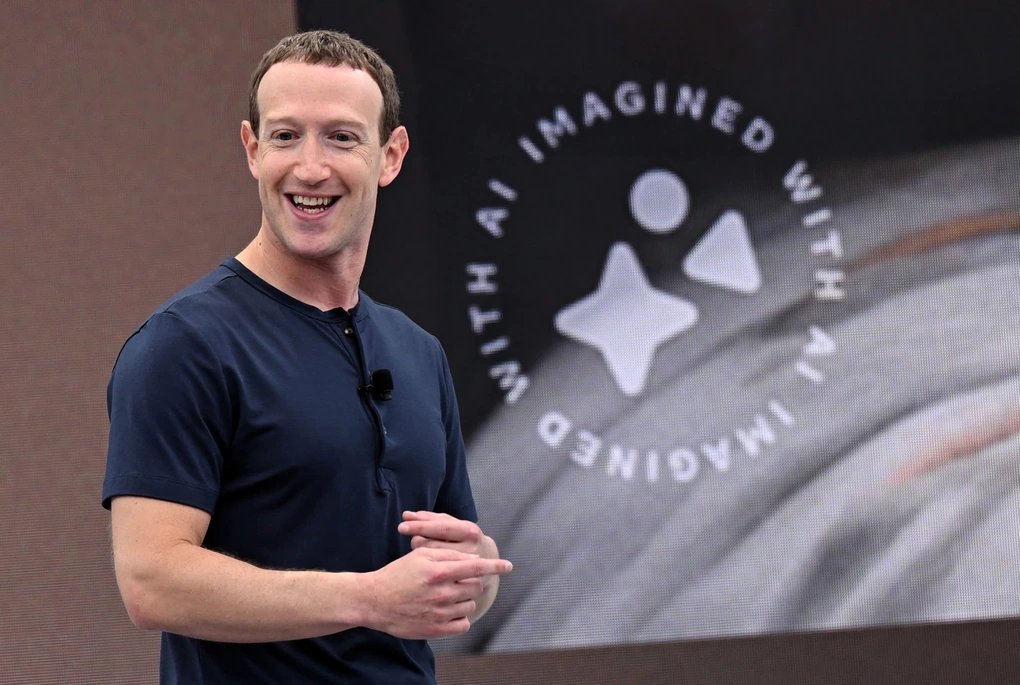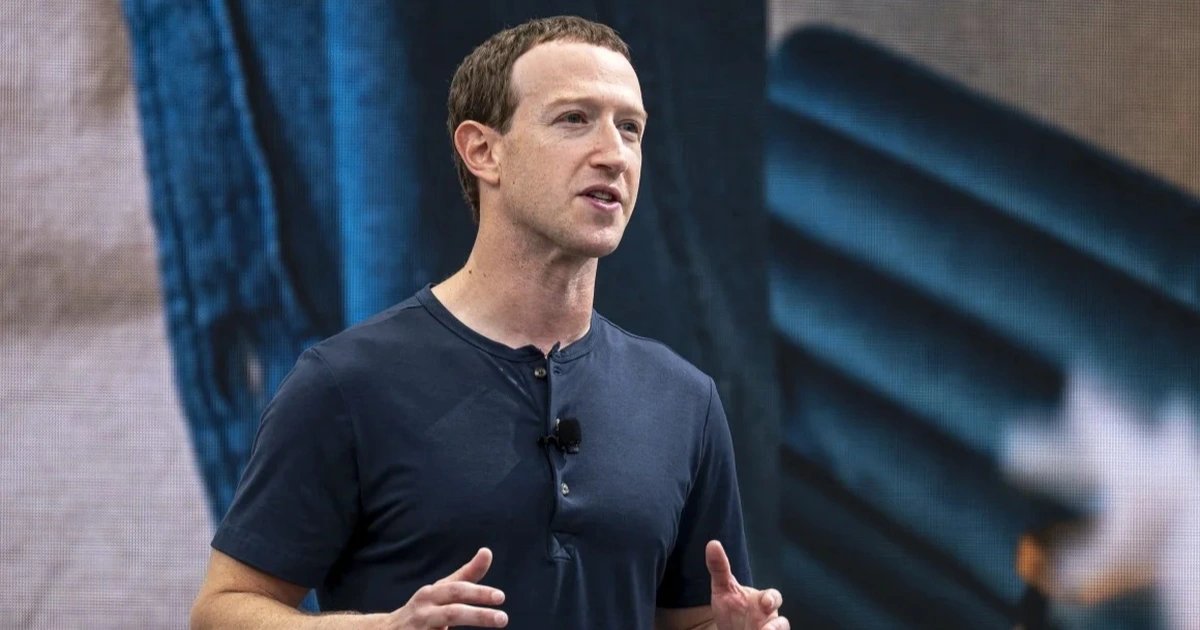In recent years, Meta, previously known as Facebook, has faced a myriad of controversies ranging from privacy issues to monopolistic behavior. But one of the most alarming accusations to surface is the claim that Meta, under the leadership of Mark Zuckerberg, used millions of books for AI development without proper authorization or compensation to the authors. This situation has sparked outrage within the literary community, as well as among tech enthusiasts and critics alike. Let’s dive deep into how Zuckerberg’s Meta allegedly “stole” millions of books to fuel the development of artificial intelligence (AI).
### The Rise of AI and Meta’s Vision for the Future

Artificial intelligence has become a cornerstone of modern technology, driving advancements in everything from natural language processing to image recognition. Companies like Meta, Google, and OpenAI are racing to build the most sophisticated AI systems. Mark Zuckerberg’s vision for Meta has always been rooted in pushing the boundaries of AI, particularly through its ambitious plans for the metaverse.
Meta’s AI strategy includes developing algorithms that can understand and generate human-like text, make predictions, and even create content autonomously. The process of training these AI systems requires massive amounts of data—much of it sourced from publicly available content. It’s no surprise that books, with their wealth of knowledge, narrative structures, and human insights, have become a key source for feeding these AI models.
### The Alleged Stealing of Books: How Meta Did It
The controversy surrounding Meta’s use of books begins with the company’s alleged use of vast amounts of digital text without securing permission from the authors or compensating the owners of the works. According to reports, Meta’s AI models were trained using large-scale data sets that included text from millions of books, many of which were copyrighted and not made available for commercial use.
The books were harvested from digital libraries, online repositories, and e-book stores. Some of the content used in training AI models came from pirated sources, while others were simply scanned and digitized without proper authorization from the original authors or publishers. Meta’s AI engineers allegedly took advantage of a legal gray area, claiming that using publicly available data from books falls under fair use, even though authors and publishers often retain the rights to these works.
One of the most disturbing aspects of this issue is that many of the books in question were never intended to be used for training AI. These authors, many of whom rely on book sales for their livelihoods, were left in the dark as their works were used without compensation. While Meta has made strides in increasing transparency in its operations, this particular issue of using books for AI development remains a dirty secret that the company has yet to fully address.

### The Legal and Ethical Implications
The use of copyrighted books without permission raises significant legal and ethical questions. Copyright laws are designed to protect the rights of creators, ensuring that authors are compensated for their work. By using these books without proper authorization, Meta may be violating copyright laws, putting itself at risk of major legal action from authors, publishers, and other stakeholders in the literary community.
Furthermore, this practice highlights the broader issue of how AI companies are obtaining data to train their systems. In an era where data is a valuable asset, companies like Meta are increasingly looking to harvest as much information as possible to fuel the development of their technologies. However, when that data is obtained without consent or compensation, it becomes a violation of ethical standards.
The issue of AI training also raises questions about the long-term impact on creators. As AI continues to evolve, there is growing concern that content creators, including authors, artists, and musicians, will be left behind as machines become capable of generating content that mimics human creativity. If companies like Meta continue to exploit copyrighted works without paying creators, the future of creativity could be at risk.
### The Backlash and Public Outcry
Once news of Meta’s use of millions of books for AI development without compensation to the authors became public, the backlash was swift and fierce. Authors, publishers, and readers all expressed outrage at the company’s actions, with many calling for stricter regulations surrounding the use of copyrighted material for AI training.
Several authors took to social media to voice their frustrations, with some suggesting that Meta was effectively stealing their work to further its own profits. Others argued that the use of books without compensation was a direct violation of intellectual property rights and could set a dangerous precedent for the future of the literary industry.
The public outcry was not limited to authors. Many members of the tech community also criticized Meta, accusing the company of exploiting creators for profit. Some even argued that Meta’s actions were emblematic of the broader issues within the tech industry, where companies often prioritize profits over ethical considerations. For many, this scandal revealed the dark underbelly of Silicon Valley, where corporate greed and a thirst for innovation can sometimes override fundamental moral principles.

### How Mark Zuckerberg Responded
In the wake of the backlash, Mark Zuckerberg and Meta faced growing pressure to address the issue. Zuckerberg’s public response to the controversy was initially vague, with Meta’s representatives stating that the company was merely using publicly available data for its AI models and that the use of books fell under fair use. However, this explanation failed to quell the anger of authors and other stakeholders, many of whom demanded that Meta compensate creators for the use of their work.
To address the situation, Meta proposed a series of measures aimed at improving transparency and ensuring that authors were properly compensated. The company announced that it would engage with publishers and authors to explore licensing agreements for the use of copyrighted material in AI training. It also pledged to take a more proactive approach to sourcing data ethically and to ensure that the rights of creators were respected.
Despite these efforts, many critics remained skeptical. They argued that Meta’s response was more about damage control than genuine concern for authors and creators. Some believed that Meta was only taking action because it faced significant public pressure, rather than out of a genuine commitment to protecting intellectual property rights.
### The Future of AI and Copyright Law
The Meta book scandal has sparked a broader conversation about the future of AI and the legal frameworks that govern the use of data for training purposes. As AI technology continues to evolve, it is becoming increasingly difficult to determine what constitutes fair use and what constitutes infringement. Copyright law, which was originally designed for traditional forms of media, is struggling to keep up with the rapid pace of technological advancement.
Experts argue that new laws and regulations are needed to address the growing concerns surrounding AI and intellectual property. Some suggest that AI companies should be required to obtain licenses for any copyrighted material they use to train their systems, while others believe that authors should be given the ability to opt in or out of having their work used for AI development.
The debate over AI and copyright law is likely to intensify in the coming years as AI becomes more advanced and widespread. In the meantime, companies like Meta will need to navigate the complex legal landscape surrounding the use of copyrighted material in AI training, or risk facing even greater public backlash and legal challenges.

### Conclusion
Meta’s dirty secret regarding the use of millions of books for AI development highlights the complex ethical and legal challenges posed by the rise of artificial intelligence. While Mark Zuckerberg’s company may have believed it was operating within legal boundaries by using publicly available data, the reality is that authors and creators were exploited in the process.
This scandal serves as a wake-up call for both the tech industry and lawmakers, emphasizing the need for stronger protections for intellectual property in the age of AI. As the world continues to grapple with the rapid growth of AI technology, it is crucial that we strike a balance between innovation and fairness—ensuring that creators are compensated for their work while allowing AI to reach its full potential.
For now, the story of how Mark Zuckerberg allegedly “stole” millions of books for Meta’s AI serves as a cautionary tale about the dark side of technological progress and the importance of safeguarding intellectual property in the digital age.
